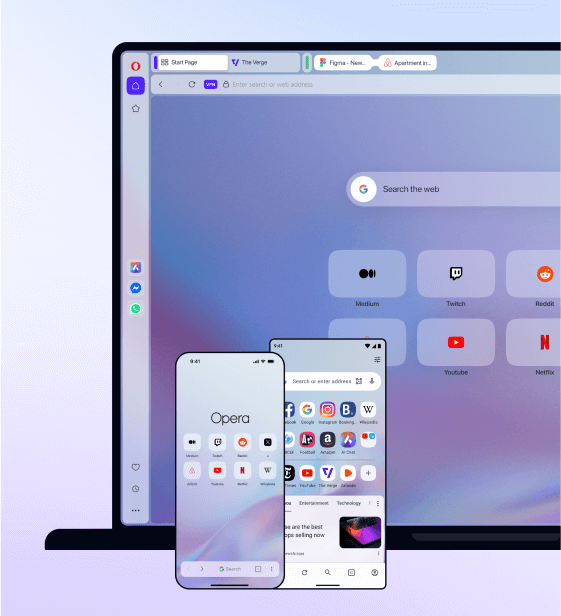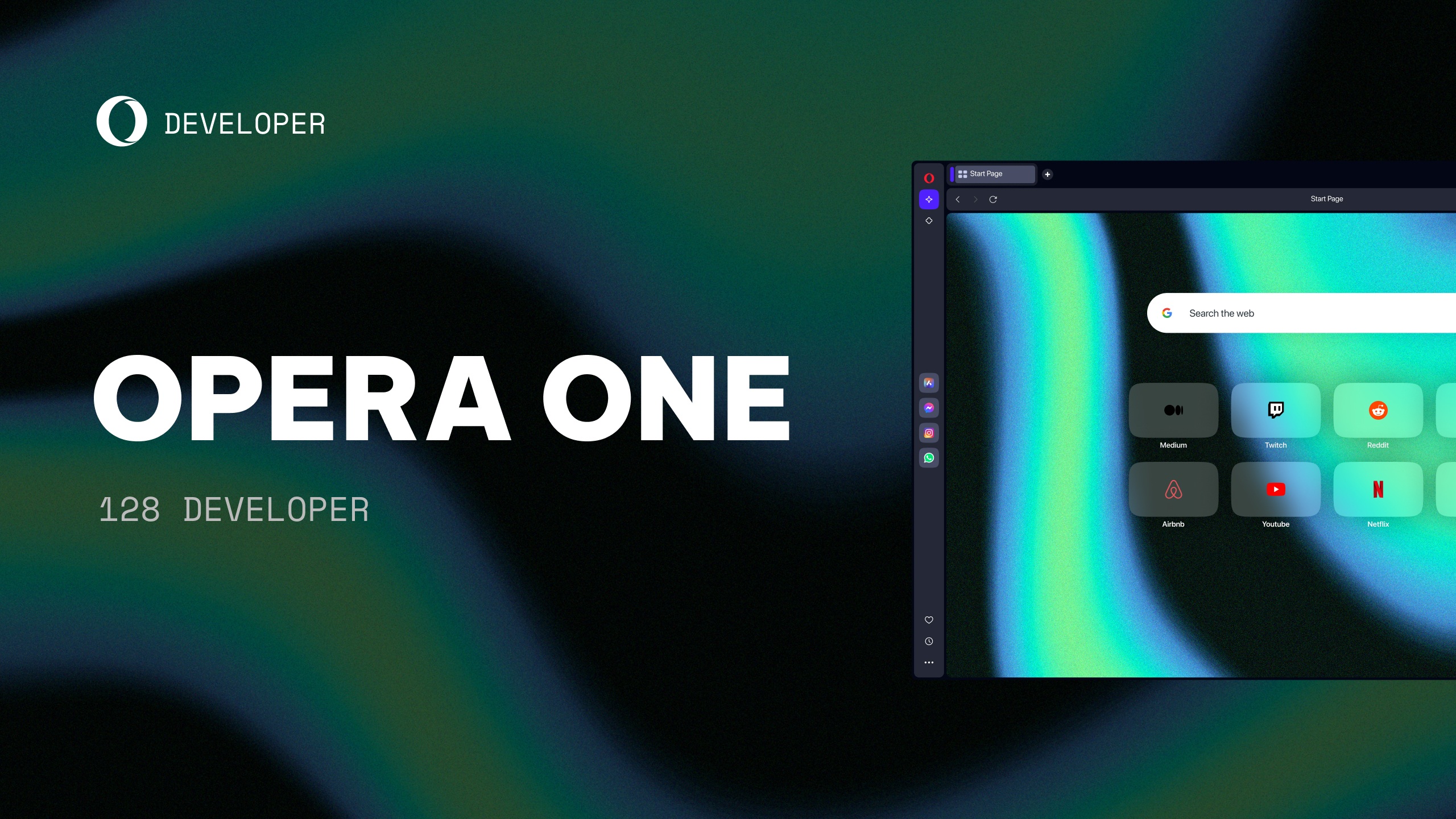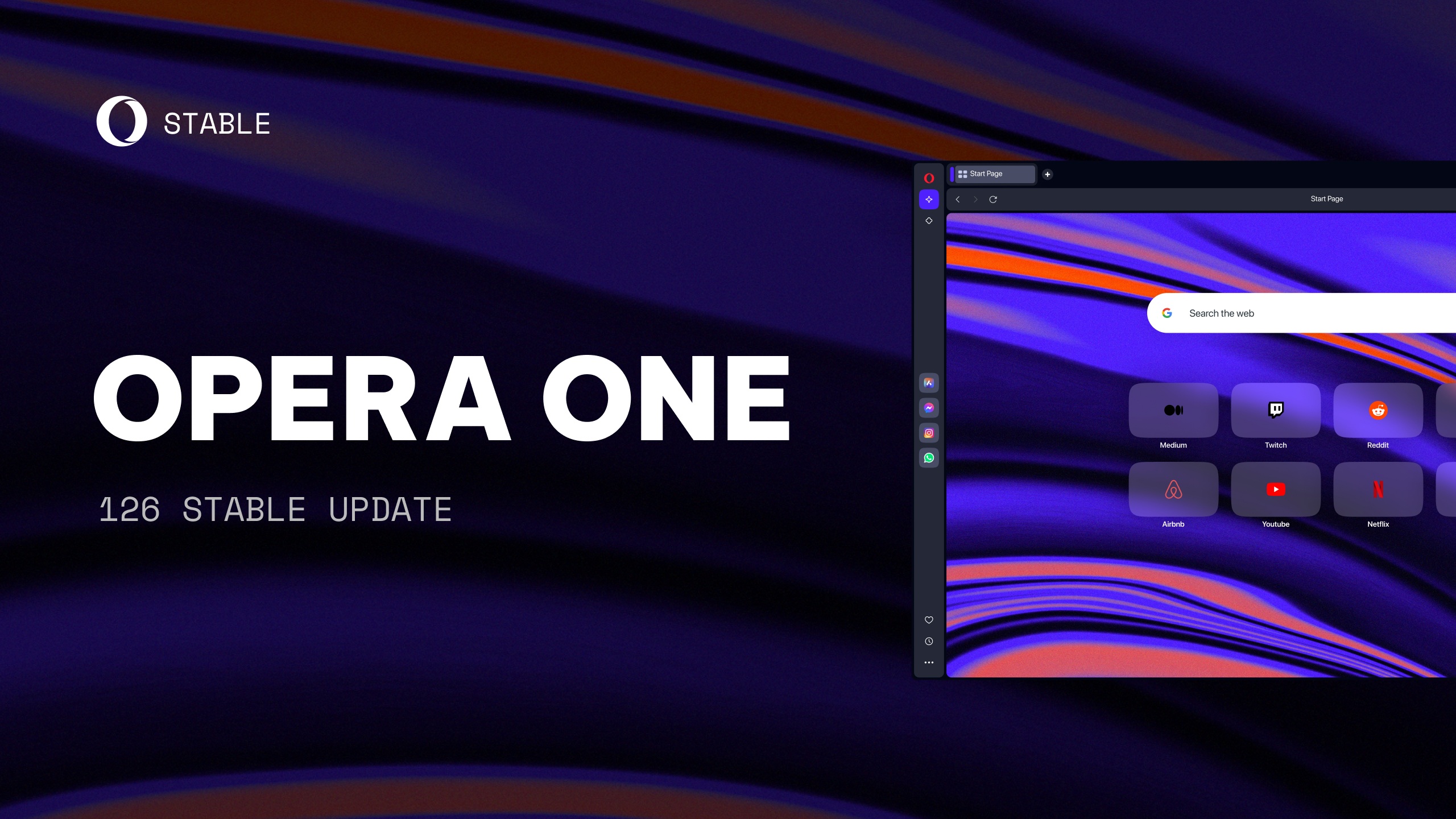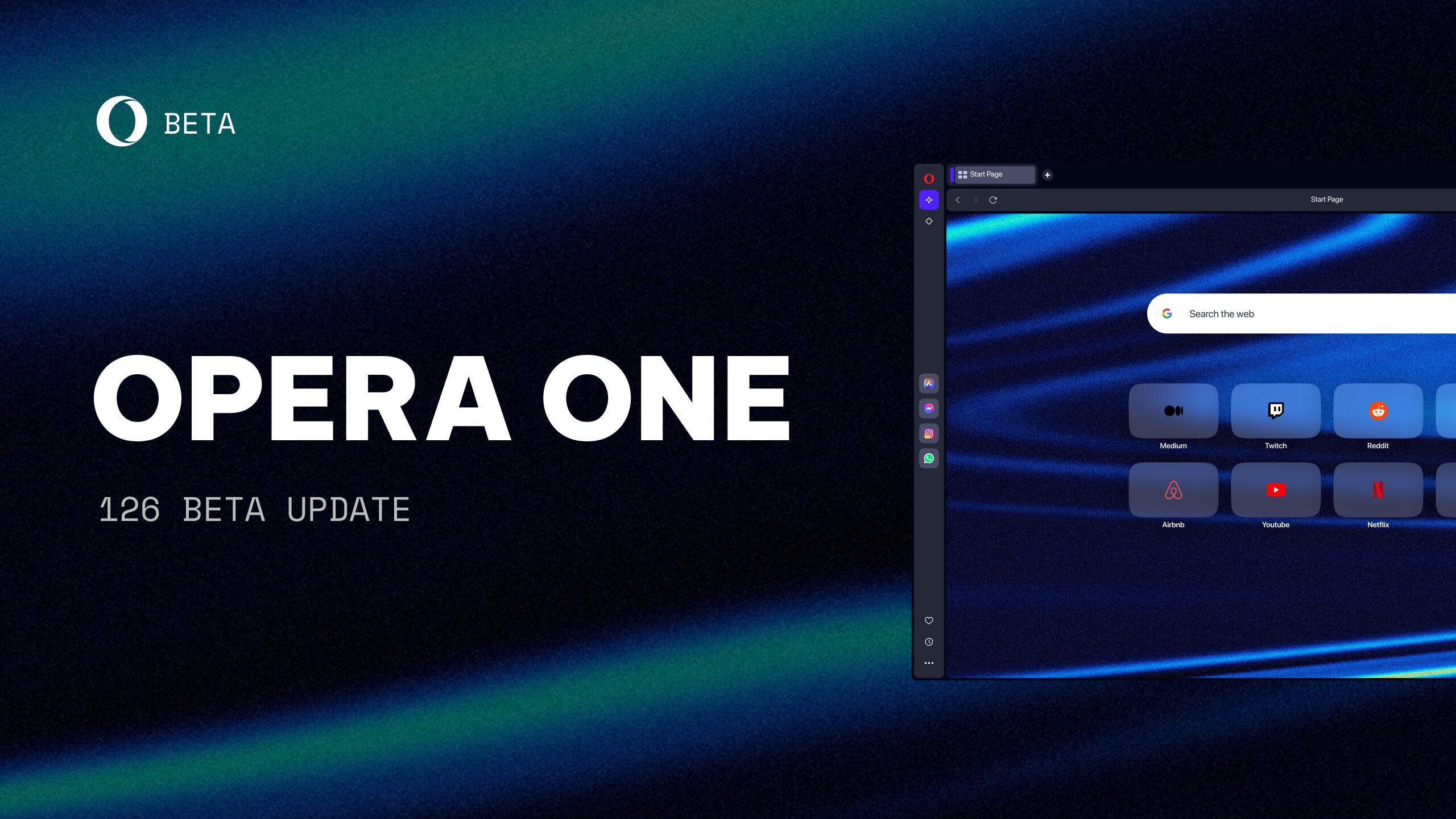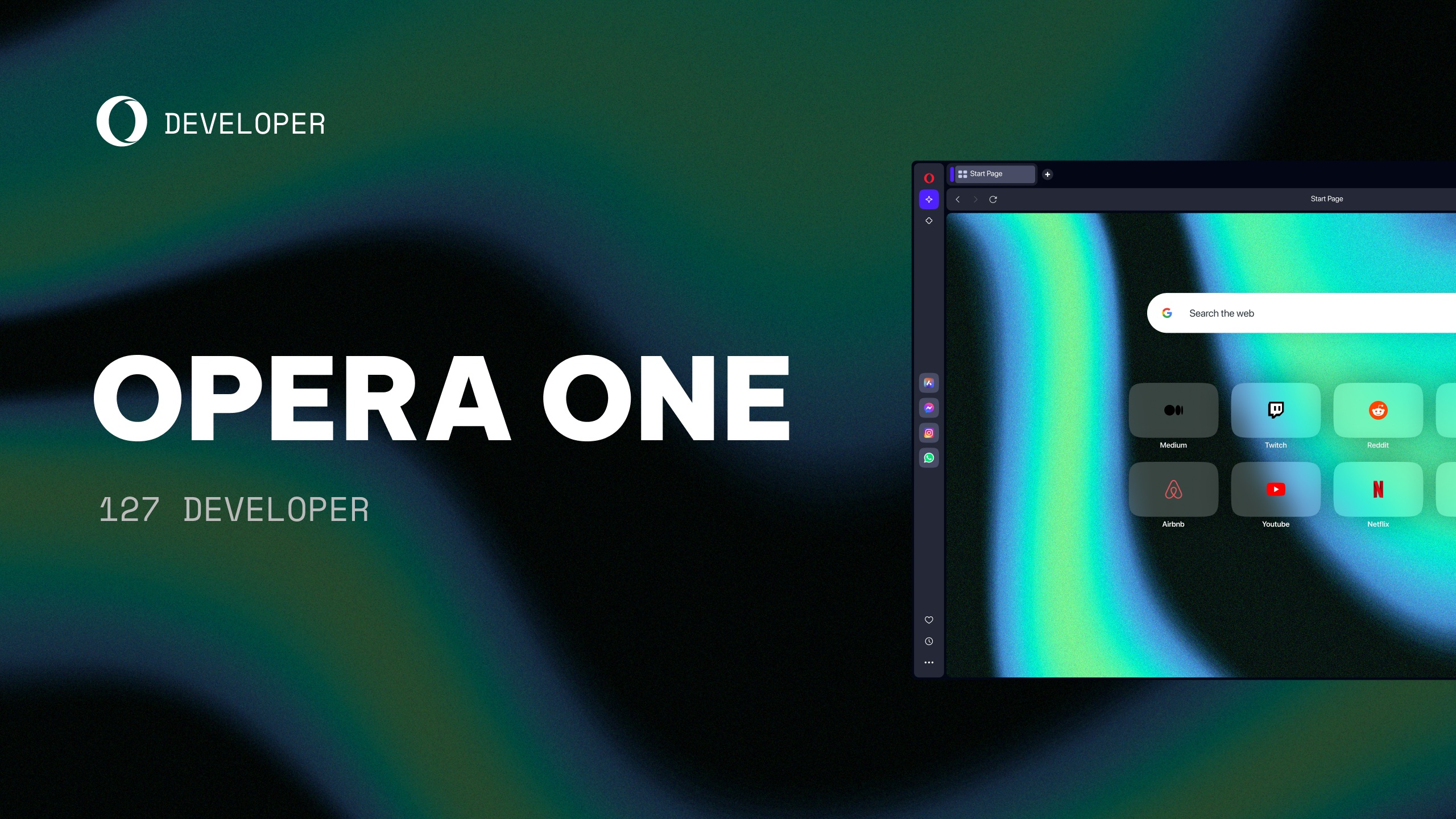Introducing battery saver in Opera for computers
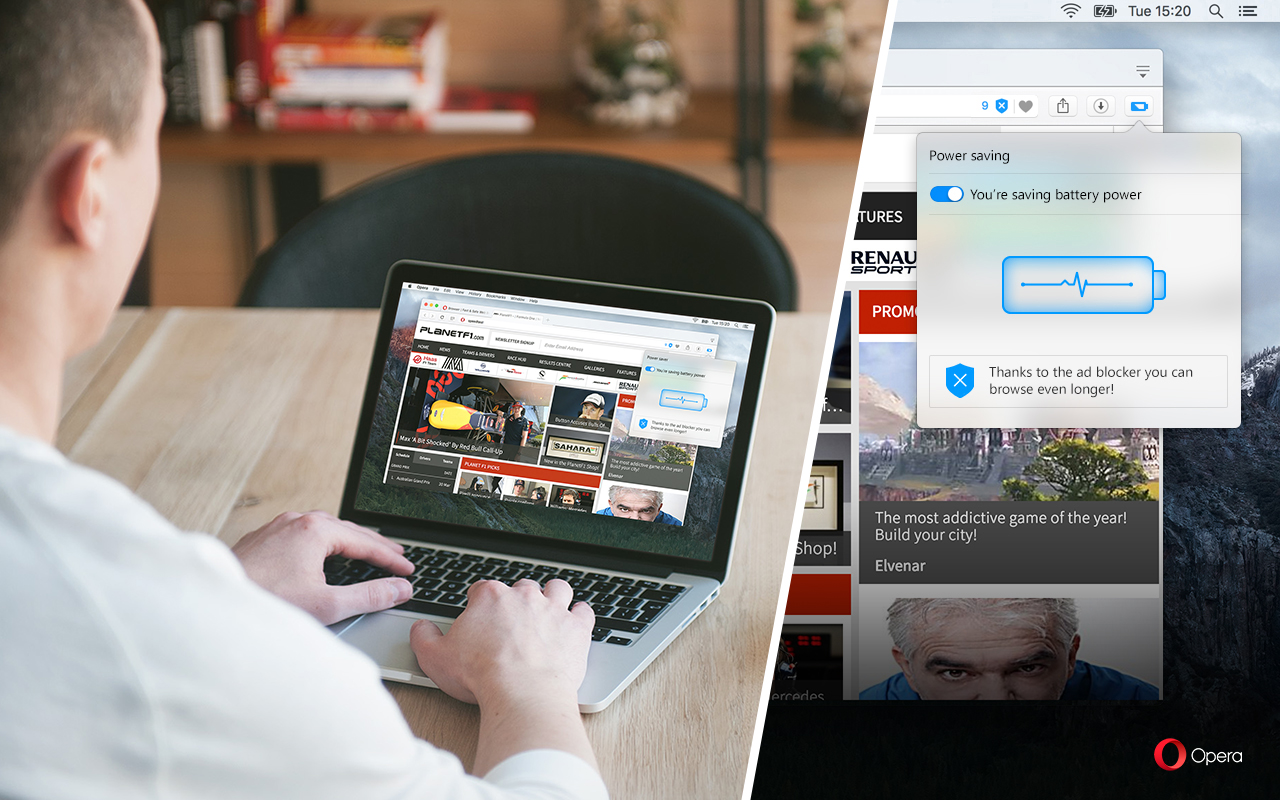
Today, we are sharing with you yet another feature to try out in the developer channel for Opera for computers.
We are the first major browser to include a dedicated power saving mode, designed to extend your laptop battery life by up to 50% compared with, for example, Google Chrome. Depending on your type of hardware, it can mean several hours more browsing before you need to recharge your laptop.
Fear of running out of battery
Running out of battery is one of the most frustrating things that can happen to you while browsing. Whether you are traveling, watching videos, or you have just left your charger behind, the icon showing that your battery is dying is something none of us really want to see when we have important things to do online.
Luckily, since people spend almost all their time in their web browser and relatively speaking little time in other desktop applications, this is something we can do something about. Some months ago, we asked our browser engine team to start tuning Opera in order to give people people more hours of browsing when on the move.
Getting started with power saving
It’s easy to use the the new power saving mode. Once the laptop’s power cable is unplugged, the battery icon will appear next to the search and address field in the Opera browser. Click the battery icon to activate the power saving mode and flip on the switch.
The browser will also suggest you enable power saving mode when your laptop reaches 20% remaining battery capacity.
We made several under-the-hood optimizations to deliver these savings:
- Reduced activity in background tabs
- Waking CPU less often due to more optimal scheduling of JavaScript timers
- Automatically pausing unused plug-ins
- Reduced frame rate to 30 frames per second
- Tuning video-playback parameters and forcing usage of hardware accelerated video codecs
- Paused animations of browser themes
We believe these optimizations provide nice savings for you without compromising the speed and functionality you expect.
Battery savings for real-life browsing
Researching battery life is a typical “your mileage may vary” problem. However, we wanted to end up with a solution that would improve your daily laptop experience and not be something that works only in clean lab conditions.
We started by studying how our laptop users interact with the browser, which inspired us to create benchmarks that resemble real-life usage. Unlike speed benchmarks, there is quite a lot idle time and background activity. And, surprisingly, you can save a lot of energy from optimizing those states. Modern processors do an amazing job in saving power by taking tiny naps multiple times per second, and what our development team focused on was writing code that would wake them up as infrequently as possible.
Once we developed the set of optimizations included in this release, we began testing them in an as isolated way as possible using a telemetry framework. It is a great tool that can tell you how many miliwatthours your browser used in the test scenario. But, how could we convert electrical units into something more meaningful in our daily life – saved time?
So, we started doing full battery discharge tests on devices that we use daily. After a day or two, we ended up with lots of seemingly random data. Display backlight level, distance to Wi-Fi access point, antivirus software, system updates, other applications and even a forgotten driver for a motorcycle helmet headset – they can all significantly contribute to power usage. It took us quite some time to normalize our test environments, but still the challenge was to be able to repeat the tests multiple times in order to get statistically meaningful results. Draining battery fully takes time, recharging takes time as well. Therefore, we have been working on estimating battery lifetime from shorter tests that we can do now with a pretty high degree of confidence. The only tedious thing left was to actually plug in and plug out the charger, but, hey, show me an engineer who wouldn’t love to hack with some home automation systems?
Up to 50% more time browsing
The results from testing the power saving feature in this developer release show very promising results. In our test, designed to reflect the way people use browsers in real life, the latest Opera developer version was able to run 50% longer than browsers like Google Chrome on a laptop running Windows 10, 64-bit.
The power saving mode results used in this posts were actually done on a Lenovo X250, Core i7-5600U, 16GB RAM and Dell XPS 13, 16GB RAM running on Windows 10, 64-bit, high-performance power mode. We used Selenium WebDriver loading 11 popular websites including YouTube. Each page was opened in separate tab, without closing previous ones, and was scrolled 5 times, then left alone for a minute. The test was repeated until the laptop ran out of battery completely. While testing the battery life with the power saving mode enabled, the ad blocker was on, too.
Changes to browser VPN
In addition to the power saving mode, we have worked on improving the browser VPN experience. After the initial developer release of the integrated VPN feature in our Opera browser, we got tons of positive feedback and suggestions from you. One of the most common requests we heard was to to make it easier to browse with some websites in VPN mode, while at the same time keep browsing other websites with VPN turned OFF . We also realized many people really wanted to use our browser VPN in combination with private browsing. So, we have changed the VPN feature to be part of our private browsing mode.
We believe that with this change, our browser VPN features provides even better privacy for users. Moreover, we wanted to make it easier to discover for new and existing users, therefore the VPN badge is always visible in the private window.
Additionally, in the first release for VPN, there was an issue where your original IP could be found by the webpage through establishing an WebRTC connection. We have resolved this by deactivating WebRTC when in VPN mode.
Thank you for all the feedback!
Your input is very important for us to release new features as soon as possible. Please continue your great work!
Installation links:
- Opera developer for Windows
- Opera developer for Windows x64 – experimental
- Opera developer for Mac
- Opera developer for 32-bit Linux – deb file
- Opera developer for 64-bit Linux – deb file
- Opera developer for 32-bit Linux – RPM file
- Opera developer for 64-bit Linux – RPM file
Changelog: Full changelog link








